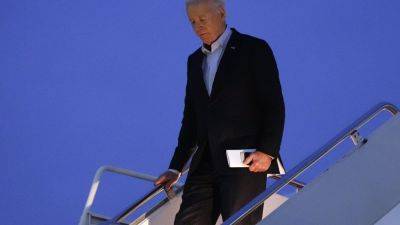Will foreign policy cost Biden the election?
When big questions about American foreign policy collide with an election, it’s rarely good news for a sitting president.
Like many leaders before him, US President Joe Biden has had some of these questions thrust on him, such as Russia’s invasion of Ukraine. Some have their origins in past administrations, such as the withdrawal from Afghanistan. Most are a mixture of both, such as Israel’s retaliation against Gaza and the role of Iran.
Given the magnitude of these intersecting crises and the fact they are happening during a fraught election campaign, it’s not surprising Biden’s foreign policy is subject to intense scrutiny.
So how might this administration’s foreign policy influence voters’ decision-making in November?
Back to Afghanistan
Many analysts trace the start of Biden’s foreign policy troubles to what is often described as the “botched” American withdrawal from Afghanistan. In isolation, and despite the entirely avoidable tragedy that has unfolded there, Afghanistan alone is unlikely to have made an electoral impact beyond the hand-wringing of some political pundits.
That is not necessarily the case with the other global crises that now grip the Biden administration – especially its response to Gaza.
It is notoriously difficult to predict voter intention, especially this far out from election day. But a look at the history of the impact of international problems on voter intention in elections can help us understand how Americans think about their role in the world, and the influence that might have on their choice of leader this time around.
1968 redux?
This year, the Democratic National Convention returns to Chicago, Illinois. Given the startling parallels between this year and 1968 – when the convention was







